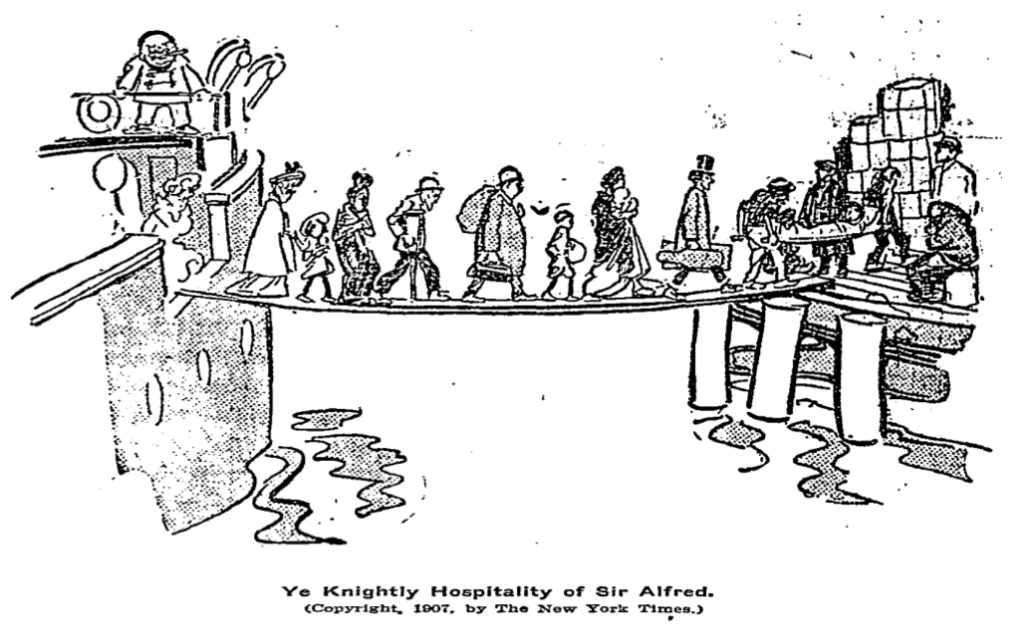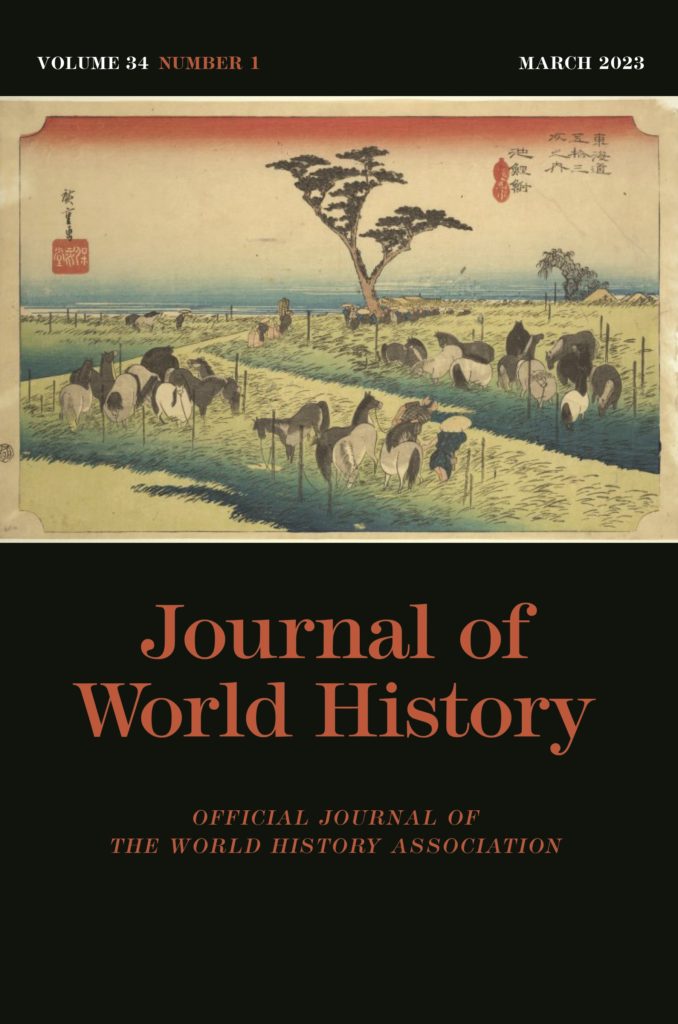A new special issue from the Journal of World History is now available to readers on Project MUSE.
This new special issue features guest editor Scott C. M. Bailey. Since 2018, Bailey has been fortunate to have support of a research grant from the Japan Society for the Promotion of Science (JSPS). This has allowed him to explore the history of travel and exploration in a global context. He is now focusing on this topic in relation to the area around the Sea of Okhotsk and am preparing a book manuscript now on this topic.
We had the opportunity to speak to Bailey about this special issue:
University of Hawai‘i Press: Tell us how this special issue came together and why is this issue different from what JWH has published in the past?
Scott C. M. Bailey: My idea for this special issue originated in spring 2020 at the beginning of the pandemic. As countries closed borders and international travel was drastically curtailed, it led me to think more about the history of long-distance travel. I wanted to understand better how the international movement of people for business, tourism, research pursuits, and many other reasons today, which has become so routinized (and was also so disrupted during the pandemic), existed in an earlier form in the late nineteenth century world.
I thought that a comparative global analysis of the accounts of travelers from the “age of imperialism” in the late nineteenth century could forward our collective understanding of empires of the time, while also shining light on the degree to which long-distance travel reflected inequalities while also being done to serve commercial and political elites’ interests. I was fortunate that the colleagues who approached me with their ideas for papers each had very interesting examples from their own research backgrounds to work with, and that they were all excited to explore their topics through a new comparative framework.

UHP: What were some of the challenges with this issue? Is the pandemic still an issue with the creation of these articles and research?
SB: The pandemic has of course made historical research more difficult in many ways, curtailing travel to some locations and restricting access to materials that need to be accessed in person. But to some degree the technological changes which the pandemic brought have helped make some research easier, since so many rare historical sources that could only be found in specific archives or libraries are becoming available to access online, as many institutions have moved or are moving towards digitization of their collections in the last few years. I think the pandemic has made us all adapt in many ways to the new circumstances, and our research has been in some ways strengthened by that. Regardless, I think most historians are happy that they can get back to in person research again. There’s no replacement for the unique experience of being in libraries and archives.
UHP: Is there anything that is not to miss in this volume?
SB: I think when you read this collection of articles together, you will find that each of them highlights these issues well. This special issue will probably be very interesting for those in more traditional area studies backgrounds, too, since each article has a regional focus of sorts (although always with external/global examples to compare those regional examples with).
UHP: Is there anything else you would like our readers to know?
SB: I hope that readers will continue the work that our authors in this special edition have done with employing a comparative lens to the study of late nineteenth century travel. As I mention in my introductory piece for the special edition, I think that there is potential for many more studies that take a similar approach, given the high volume of existing travel accounts from that era. I hope some will be inspired by this collection to locate aspects of their own research topics that could benefit from taking this kind of comparative approach. I would be very pleased to read future articles in the Journal of World History which take this comparative approach to exploring the relationships between empire and long-distance travel.
Read the special issue here on Project MUSE.

Volume 34, Issue 1
Table of Contents
Introduction: Global Travel, Exploration, and Comparative Study of Empire
Scott C. M. Bailey
Passing the Torch? Anglo-American Encounters in the British
West Indies and Negotiating White Supremacy, c. 1865–1914
Alex Goodall
Unobvious Parallels: Christiaan Snouck Hurgronje, Wacław
Sieroszewski, and Their Role in Gathering Imperial Knowledge
in Sumatra and Yakutia in the 1890s
Darius Kołodziejczyk and Igor Iwo Chabrowski
Mobility in an Age of Imperialism, Nation-Building, and
Revolution: Kawata Masazō’s Late-Nineteenth-Century
Pacific World
Catherine l. Phipps
Anthropology, Opportunity, and Empire: Collecting Expeditions
in Sarawak and the Philippines, 1898–1909
Matthew J. Schauer
Subscribe to Journal of World History
Individual subscriptions are available with membership to the World History Association. Institutional subscriptions can also be obtained through UH Press here.





